2024 Bauder Lecture
building a social contract: modern workers' houses in early twentieth-century detroit
In-Person Lecture, Conversation, and Book Signing with Michael McCulloch
Presented by Cranbrook Center for Collections and Research
Michael McCulloch is Associate Professor of Architecture at Kendall College of Art and Design of Ferris State University, and author of the 2023 book, Building a Social Contract: Modern Workers' Houses in Early Twentieth-Century Detroit.
Lecture hosted by Gregory Wittkopp, Center Director
Conversation Moderated by Kevin Adkisson, Center Curator
The Lecture will be followed by a Reception with refreshments and a cash bar and Book Signing in the Lower Galleries of Cranbrook Art Museum. Related documents from the collection of Cranbrook Archives will be on display.
Admission is free; Seating is Limited
Advance Registration Required
Building a Social Contract Book and Lecture Registration
$37 (including sales tax) for one Free Lecture Attendee and one Book
A limited number of books may also be available at the lecture. Book proceeds support Cranbrook Center for Collections and Research. Additional book details are noted below.
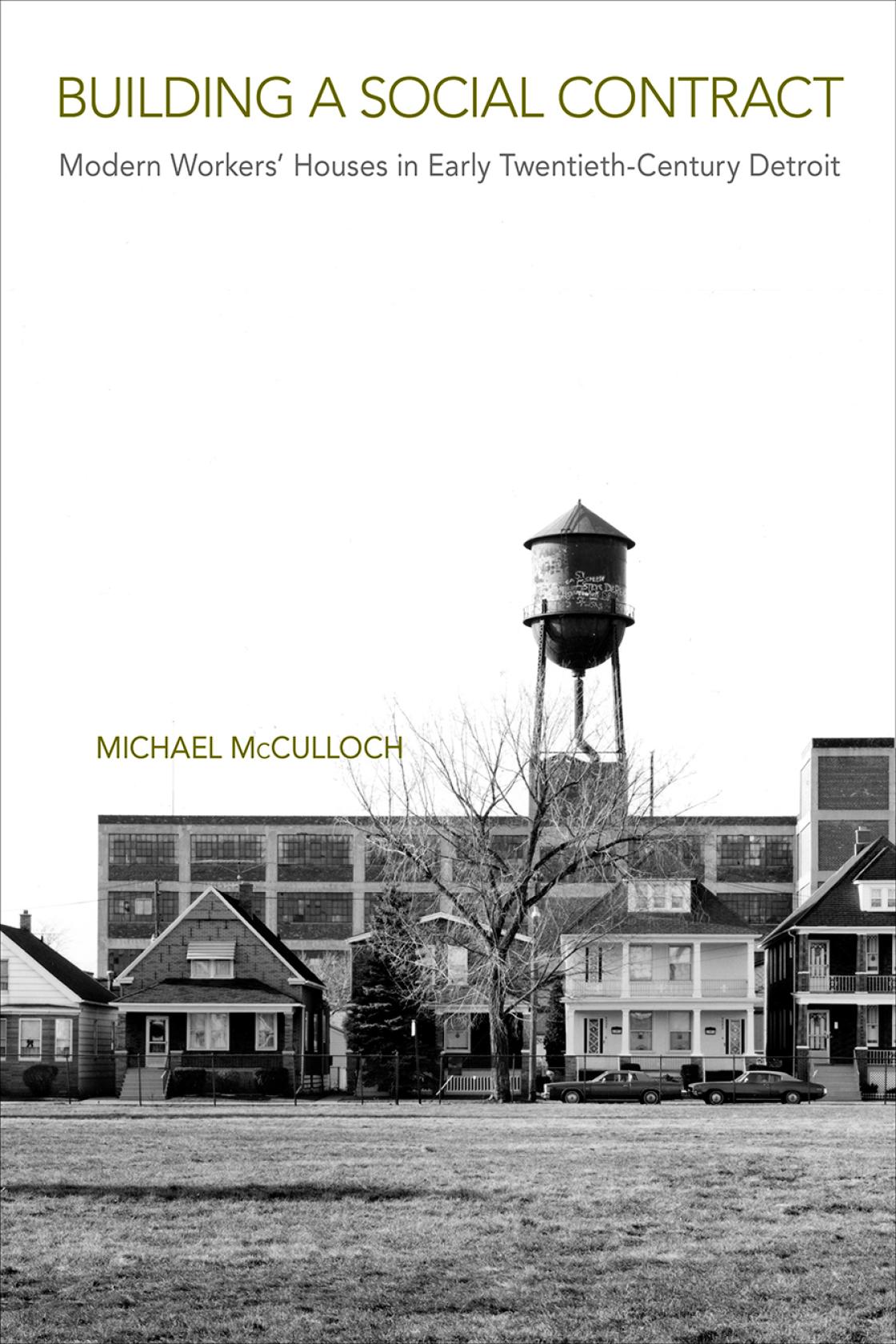
about the lecture
"In his insightful new study, Building a Social Contract, Michael McCulloch take us into the bungalows, cottages, and two-flats of working-class Detroit at the height of America's industrial age. Through those utterly ordinary place he builds a powerful analysis of the pride, hope, hatred, and fear that shaped the blue-collar version of the American Dream."
—Kevin Boyle, William Smith Mason Professor of American History at Northwestern University
Join Cranbrook Center for Collections and Research as we welcome architect and historian Michael McCulloch, author of the acclaimed new book Building a Social Contract: Modern Workers' Houses in Early Twentieth-Century Detroit. The dream of the modern worker's house emerged in early twentieth-century America as wage earners gained access to new, larger, and better-equipped dwellings. McCulloch's history of the houses those workers dreamed of and labored for chronicles the efforts of employers, government agencies, and the building industry who, along with the workers themselves, produced an unprecedented boom in housing construction that peaked in the mid-1920s. Given its scope and significance, this period in American housing history has gone understudied, making McCulloch's work even more important.
McCulloch's work focuses on Detroit, the quintessential city of the era, where migrant workers came and were Americanized, and real estate agents and the speculative housebuilding industry thrived. The Motor City epitomized the struggle of Black workers in this period, who sought better lives through industrial labor but struggled to translate their wages into housing security amid racist segregation and violence. When Depression-era unemployment created an eviction crisis, the social contract unraveled, and workers rose up — at the polls and in the streets — to create a labor movement that reshaped American capitalism for decades.
Through oral histories, letters, photographs, and period fiction, McCulloch traces wage earners' agency in negotiating a new implicit social contract, one that rewarded hard work with upward mobility in modern houses.
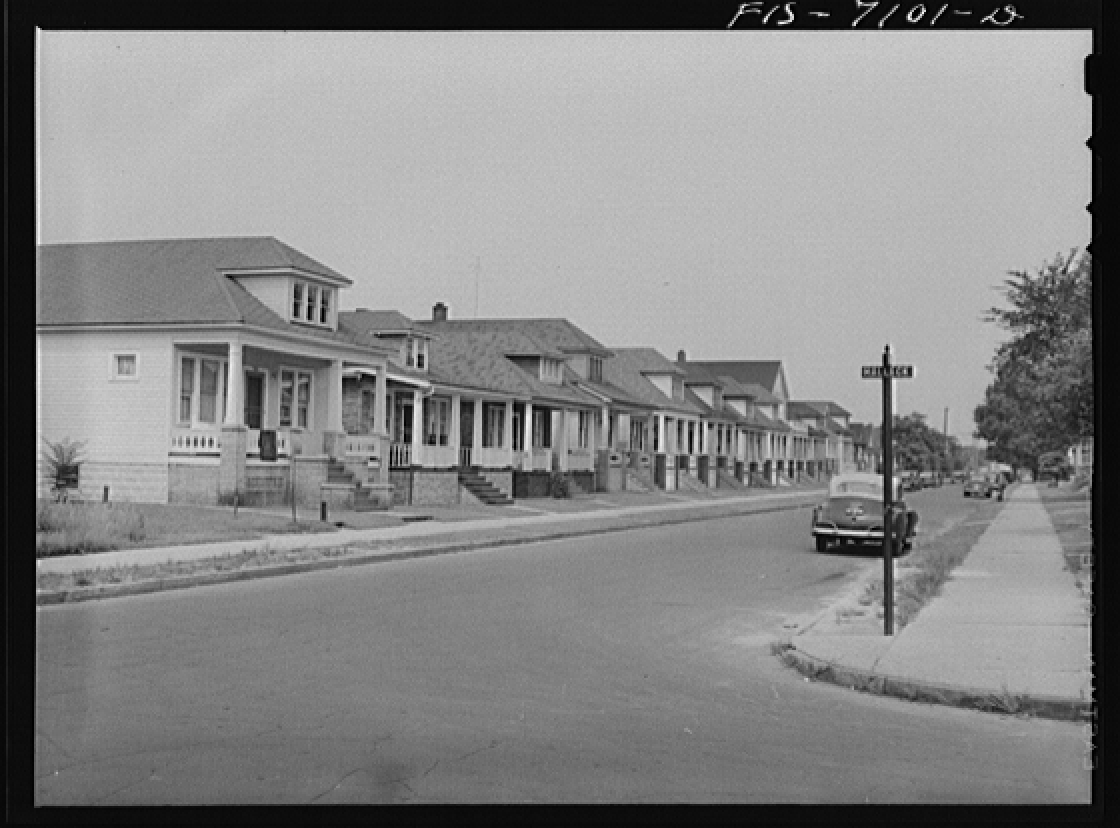
"Michael McCulloch tells one of the unheralded stories of urban America in the twentieth century: the emergence of modern homes for workers in the 1920s. The homes were modern in style, boasting indoor bathrooms and electric lighting. Using evocative photographs, he shows as well as tells, helping us to understand Detroit, then the epicenter of modern industry; the people; the plans; the builders; and best of all the meaning that these homes had for their first occupants."
—Richard Harris, Professor Emeritus at McMaster University
about the speaker
Michael McCulloch is an architect and historian whose research engages housing, labor, industrialization, and landscape. He is Associate Professor and Chair of the Master of Architecture Program at Kendall College of Art and Design of Ferris State University. Michael holds a Ph.D. in Architecture from the University of Michigan and a M.S. in Urban Design from Columbia University. He has previously taught at the University of Michigan, the University of Detroit Mercy, and Drury University. His writing has appeared in Preservation Education and Research, the Journal of Urban History, and the Journal of Planning History.
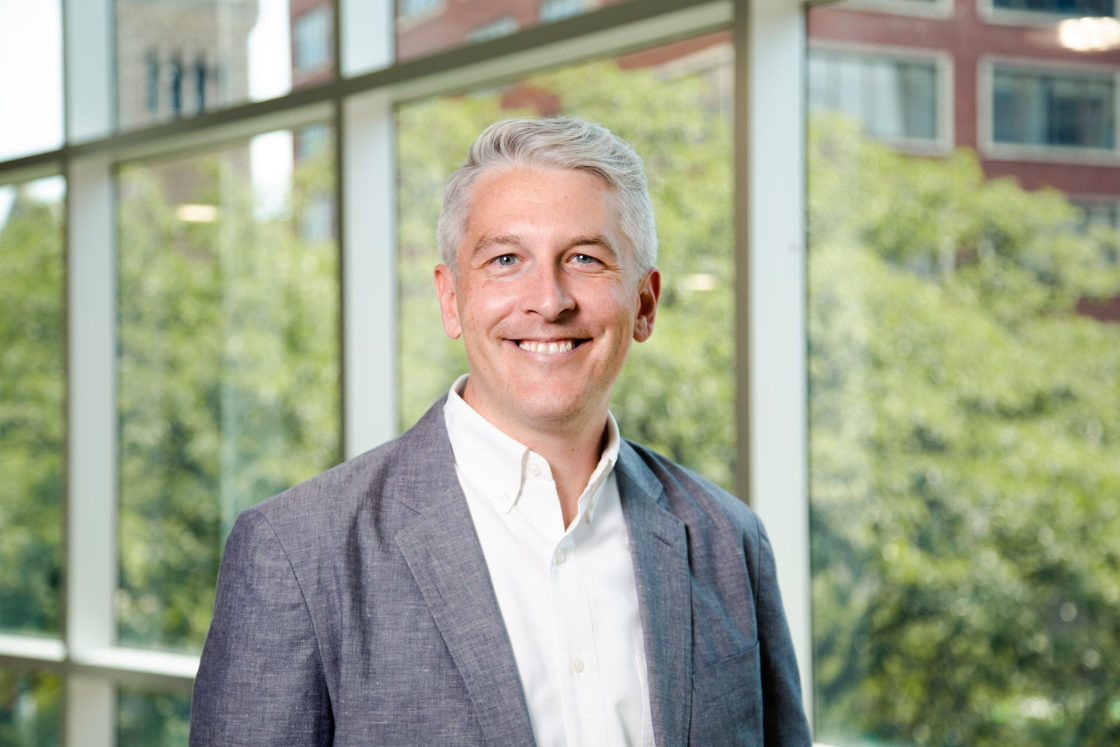
about the Bauder lecture series
This program represents the eighth installment of the Center's annual Bauder Lecture. Established in 2016 through a generous gift from Cranbrook President Emerita Lillian Bauder and her late husband Donald Bauder, this endowed lecture series allows the Center to bring to campus speakers of national significance whose work intersects with the history and legacy of Cranbrook and the work of Cranbrook Center for Collections and Research.
- 2017: The Revenge of the Analog: Real Things and Why They Matter (2016). David Sax (Author, Journalist).
- 2018: Unpacking Frank Lloyd Wright's Archive and Career. Barry Bergdoll (Columbia University Professor of Art History and MoMA Curator).
- 2019: Conservation Matters: The Work of the Getty Conservation Institute. Tim Whalen (Director of the Getty Conservation Institute in Los Angeles).
- 2020: "Cars: Accelerating the Modern World". Brendan Cormier (Senior Curator at the Victoria and Albert Museum). The Center's first virtual lecture is available here.
- 2021: Unsettling Landscapes at Cranbrook: Histories of Indigenous Communities, the Japanese Experience, and Suburban Segregation. Sarah Anthony, Bonnie Clark, Gregory Fioritto, Eric Hemenway, Mika Kennedy, John Bowes, and Thomas Sugrue. Virtual lecture is available to watch here.
- 2022: Complicating Collections at Cranbrook: Representations of a Confederate General, The Crusades, and Native Americans. Ned Blackhawk, Jennifer Borland, Mark Crain, and Alex von Tunzelmann. Virtual lecture is available to watch here.
- 2023: Experiencing Olmstead: The Enduring Legacy of Frederick Law Olmstead's North American Landscapes. Charles Birnbaum (President, CEO, and Founder of The Cultural Landscape Foundation in Washington, D.C.).
A visionary leader, Dr. Lillian Bauder served as Cranbrook's President and Chief Executive Officer from 1983 to 1996, a period during which she not only developed Cranbrook's first communitywide strategic plans but also created a master plan that ultimately led to the building of the Vlasic Early Childhood Center, the Williams Natatorium, the Academy of Art's New Studios Building, and the expansion of the Institute of Science. In 1996, Dr. Bauder became Vice President of Masco Corporation, a position she held until she retired in 2007. A 2014 recipient of Cranbrook's prestigious Founder's Award, Dr. Bauder now resides in Columbia, Maryland.

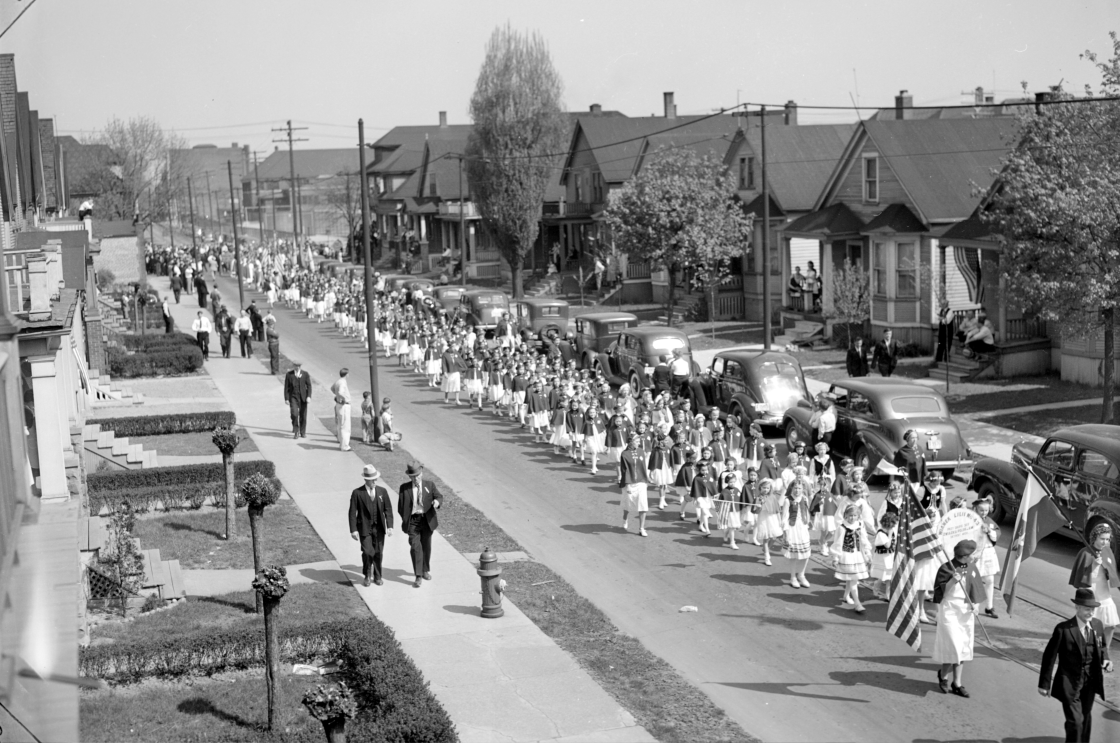
lecture location, accessibility, and additional information
Cranbrook Art Museum is accessed through Cranbrook's main entrance at 39221 Woodward Avenue. Free parking is available in designated visitor spaces behind the Art Museum building and along the turning circle drive, except as prohibited. Additional visitor parking is located at the Institute of Science parking ramp, a short walk from the Art Museum on Institute Way.
Barrier-free access to the galleries of Cranbrook Art Museum can be accomodated at the front turn around near the Orpheus Fountain or the adjacent New Studios Building. Visitors with disabilities are encouraged to call the Art Museum at 248-645-3320 during regular museum hours for assistance. Wheelchairs are available to use on a first-come, first-serve basis at the Visitor Services Desk.
For additional information in advance of the lecture, please call the Center at 248-645-3307. For information and assistance the afternoon of the lecture, please call the Cranbrook Art Museum Visitor Services Desk at 248-645-3320.
book and pickup information
The "Lecture Registration and Pre-Paid Book" option ($37, including sales tax) includes free registration for one lecture attendee and one pre-paid copy of the book Building a Social Contract: Modern Workers' Houses in Early Twentieth-Century Detroit. The book was published in 2023 by Temple University Press (242 pages; paperback).
The book will be available for pick up at the lecture on Sunday, November 10. To guarantee receipt of the book, Building a Social Contract must be ordered and pre-paid in advance. Regretfully, shipping the book is not available through the Center. If you cannot attend the lecture, books will be available for pick up after the lecture at Cranbrook House. Book proceeds support programs of Cranbrook Center for Collections and Research.
service animal policy
Cranbrook Center for Collections and Research is glad to accomodate visitors accompanied by service animals, as defined by the Americans with Disabilities Act (ADA), on its tours and at its lectures, including those at Cranbrook Art Museum. Under the ADA, a "service animal" is defined as a dog that has been individually trained to do work or perform tasks for an individual with a disability. The task(s) performed by the dog must be directly related to the person's disability. Regretfully, we cannot accomodate visitors accompanied by emotional support animals or pets.
Visitors who will be accompanied by service animals are welcome to call the Center at 284-645-3307 in advance of their scheduled tour so that we may address any questions or concerns.
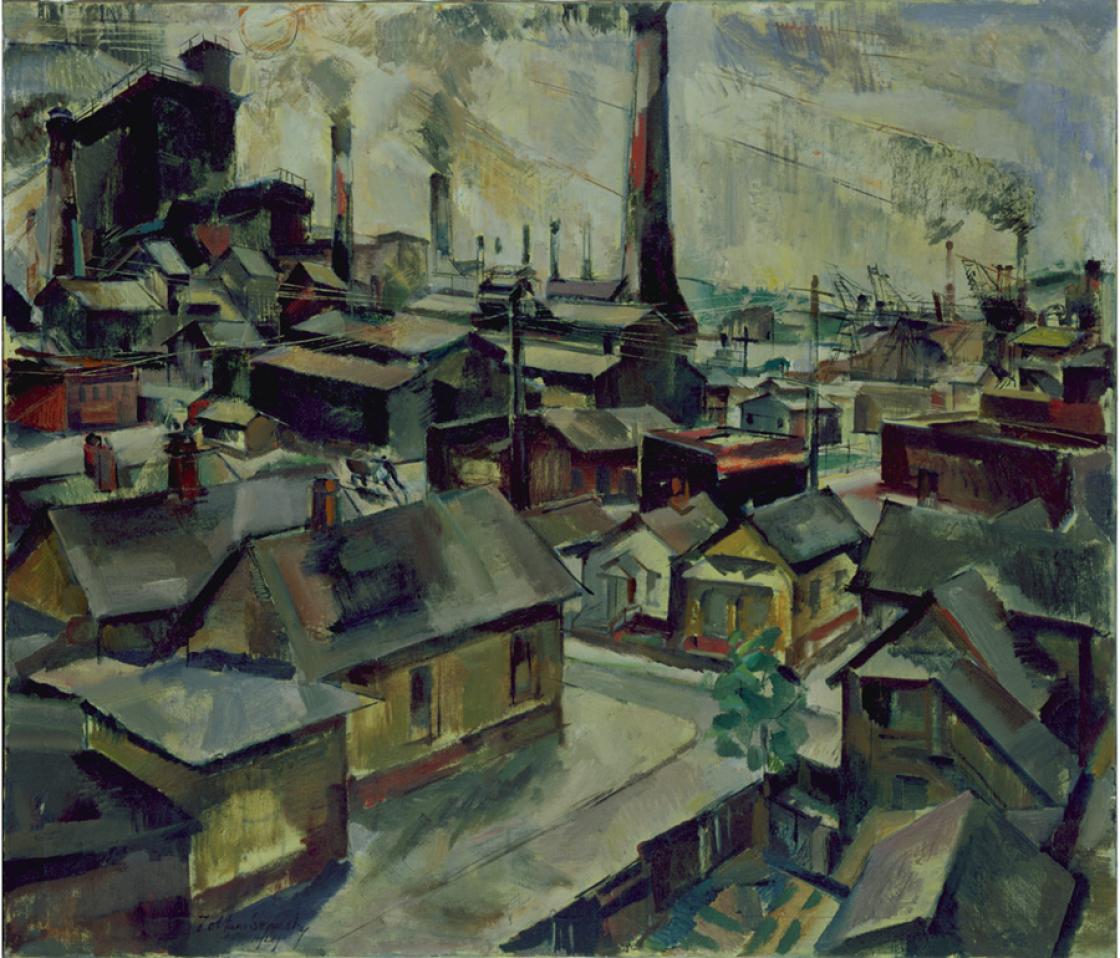
PHOTO CREDITS
Header image: Zoltan Sepeshy. Industrial Detroit (Plant No. II),1929. Collection of Cranbrook Art Museum. Photography by R.H. Hensleigh and Tim Thayer. Courtesy Cranbrook Art Museum.
Book Cover, Building a Social Contract: Modern Workers' Houses in Early Twentieth-Century Detroit, Temple University Press, 2023.
Houses in the Polish District, 1942. Photography by John Vachon. U.S. Farm Security Administration/Office of War Information Collection, Library of Congress, Washington, D.C.
Photograph of Michael McCulloch. Courtesy of Michael McCulloch.
A 1939 Parade Commemorating the Polish Constitution on Junction Avenue, Detroit's West Side. Detroit News photograph. Courtesy of Archives of Labor and Urban Affairs, Walter P. Reuther Library, Wayne State University, Detroit.
Zoltan Sepeshy. Industrial Detroit (Plant No. II),1929. Collection of Cranbrook Art Museum. Photography by R.H. Hensleigh and Tim Thayer. Courtesy Cranbrook Art Museum.
